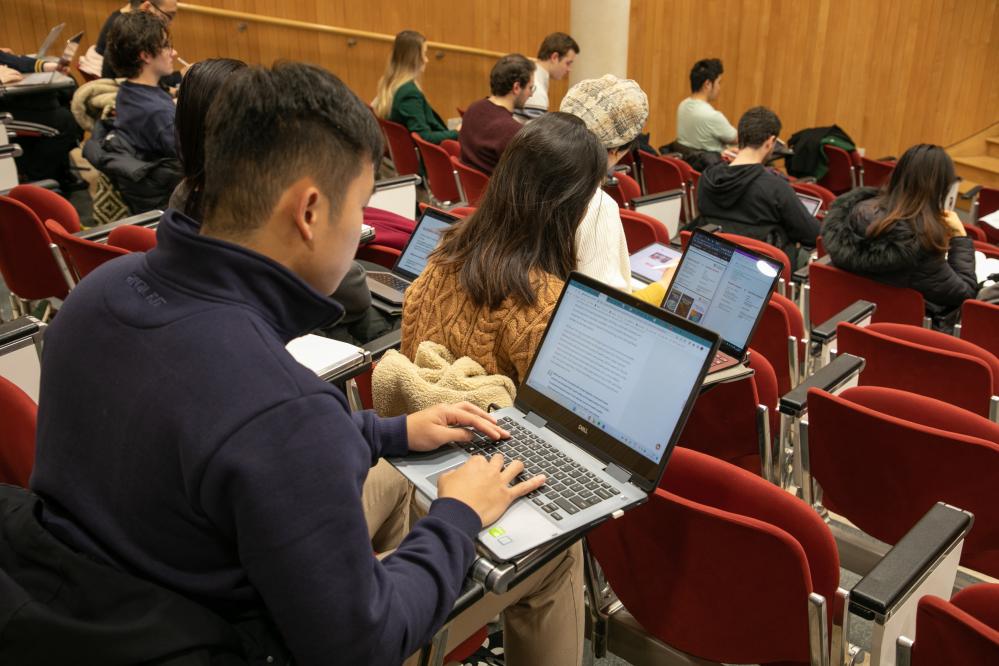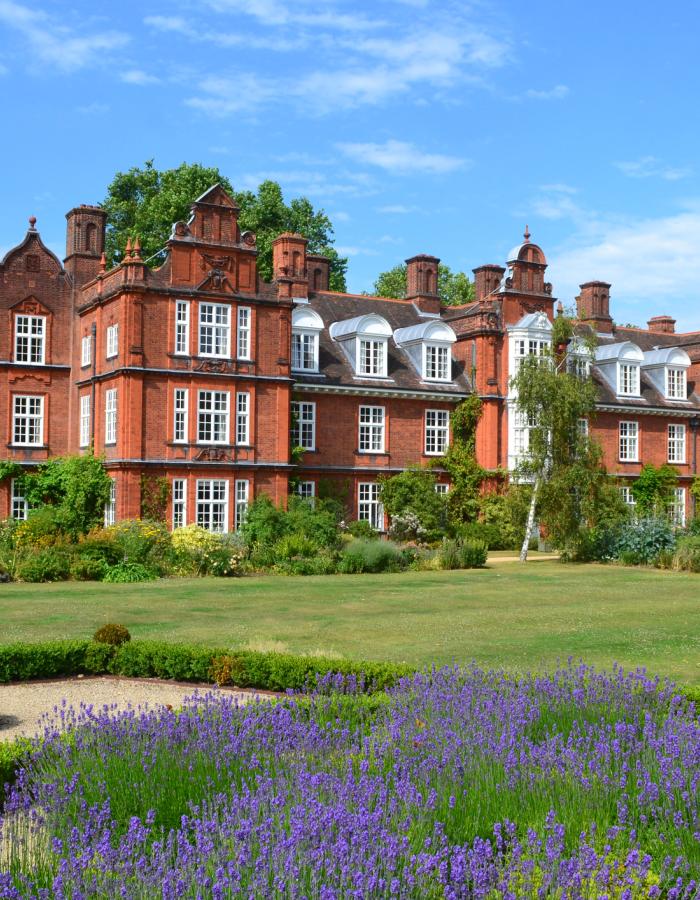Overview
Students on this course are required to:
- Undertake a compulsory 18,000-20,000 word research dissertation.
All students are required to submit a dissertation for examination. The dissertation will review literature and develop research hypotheses and possibly involve some preliminary data collection and analysis. It will be supervised by a member of academic staff within the Department. The submission date is the end of July.
- Take two Land Economy MPhil modules chosen from a list of approved options. These modules will be examined by project or essay or a combination of these forms. It is expected that the choice of modules available to Land Economy Research students in any given year will be those offered on the other MPhil courses in the Department.
- Take six core modules from the Social Science Research Methods Centre (SSRMC) Training programme.
The choice of modules will depend upon the research to be undertaken and background of the candidate. Candidates should discuss their module choices with their supervisor.
- In addition, students are able to participate in the Department’s Research Management Programme which covers issues of data collection and ethics.
It is anticipated that the research training provided by the SSRMC, plus the dissertation and the choice of specialised modules from the other Land Economy MPhils will provide the necessary and sufficient background for commencing PhD research.
Course Structure
All available modules for this course are as given below. Candidates for this degree must complete a Research Methods essay set by the Department, two Land Economy options and a compulsory dissertation of 20,000 words. Each candidate's course of study will be subject to the approval of the Degree Committee. Each candidate's course of study will be subject to the approval of the Degree Committee. The Committee reserves the right to withdraw modules if there is insufficient demand or in the event of exceptional circumstances. The availability of modules will be subject to timetabling constraints.
Six modules from the Social Science Research Methods Centre (SSRMC) Training Programme
(Michaelmas and Lent Terms)
Two modules from the following to be examined by essay or project in all cases (Michaelmas or Lent)
RE01 - Corporate finance and real estate (Michaelmas and Lent Term) (2 units)
RE02 - Real estate finance and investment (Michaelmas and Lent Term) (2 units)
PGR01 - Urban and environmental planning (Michaelmas and Lent Term) (2 units)
PGR02 - Urban and housing policy (Michaelmas and Lent Term) (2 units)
EP01 - International environmental law (Michaelmas and Lent Term) (2 units)
EP02 - Environmental economics and policy (Michaelmas and Lent Term) (2 units)
RM02 - Further topics in quantitative methods (Lent Term) (1 unit)
RM03 - Spatial Analysis and Modelling (Lent Term) (1 unit)
EP06 - Energy and climate change (Lent Term) (1 unit)
EP07 - National, Comparative, and European Environmental Law and Policy (Lent Term) (1 unit)
EP08 - Comparative environmental policy (Michaelmas Term) (1 unit)
PGR03 - Spatial economics (Lent term) (1 unit)
PGR04 - Institutions and development I (Michaelmas Term) (1 unit)
PGR05 - Institutions and development II (Lent Term) (1 unit)
RE03 - Real estate development process (Lent Term) (1 unit)
RE04 - The macroeconomy and housing (Michaelmas Term) (1 unit)
RE05 - Legal Issues in Land Use and Finance (Lent Term) (1 unit)
Applicants are required to enclose with their application an outline of their proposed research, setting out their objectives and proposed methodology. Before offering a place the Department will need to be satisfied that the proposal is one that can be undertaken satisfactorily by the candidate and that it can provide an appropriate supervisor. The proposal should be in a Land Economy related area and applicants are advised to review the research interests of the Department’s academic staff in order to ensure their work is in line with the Department’s expertise. The Department will not provide applicants with suggestions for possible research topics.
Examiners of the dissertation are required to satisfy themselves that:
- the dissertation is clearly written;
- it takes account of previously published work on the subject; and
- it represents a contribution to learning.
Boyce Family Scholarship
The Boyce Family Scholarship covers the fees for one full-time, one-year MPhil student. It is open exclusively to students who are normally resident in North America (including the Caribbean) and South America. Preference will be given to the following:
- Students from backgrounds underrepresented at postgraduate level in their field of study, in the first instance, to women and students from racially minoritized backgrounds.
- Who are pursuing an MPhil in Land Economy, or another course in the social sciences with a focus on the built environment, sustainability, and/or conservation.

Meet some of our students and visiting scholars and their experiences during and after the course
Find out what it is like to study at Cambridge, how things work and meet some of our students

Where our postgraduates go
Find out where a degree from the Department of Land Economy could take you...
Banner image © CHUNYIP WONG/iStock / Getty Images Plus via Getty Images
Banner image © Jonathan Kind/iStock / Getty Images Plus via Getty Images

